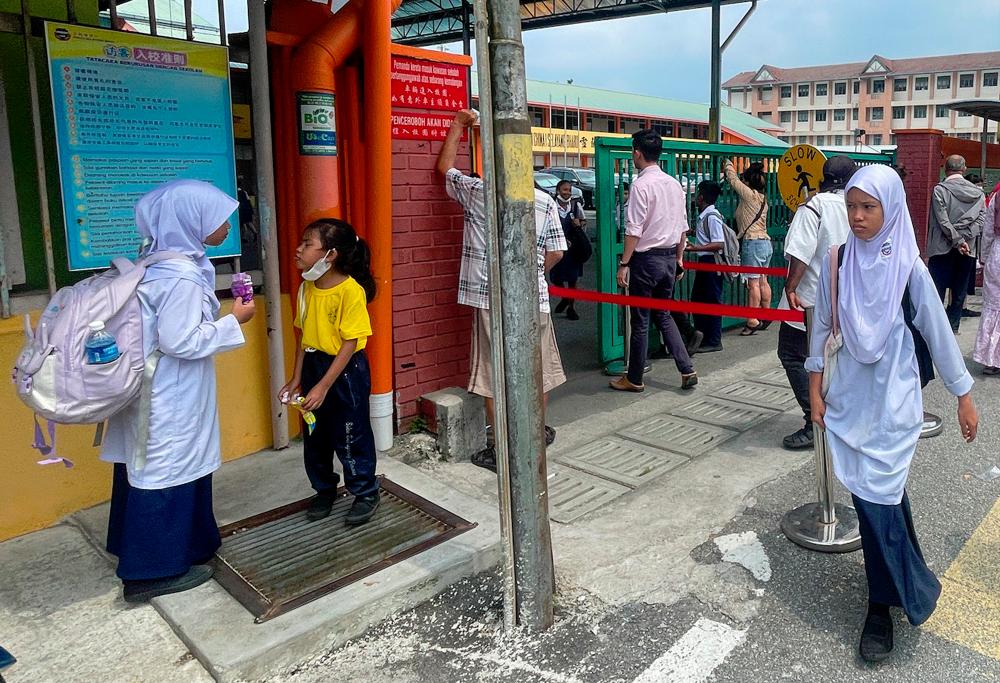AMIDST the controversy surrounding the abolishment of PT3 (form 3 exams) and UPSR (standard 6 exams) which the Ministry of Education (MOE) stood by, the education budget of RM64.1 billion for 2025 was passed.
The largest allocation yet for education, but unfortunately no performance or delivery report was issued by MOE for the education budget of RM 58.7 billion allocated for 2024.
How is it possible to judge how successful MOE was in the allocation and use of RM58.7 billion in the absence of a comprehensive and perhaps audited report of money spent in the 2024 budget?
MOE’s Performance and Delivery Unit, which had been tasked with this responsibility ceased operations at the end December 2023, with no indication of any future reports or its role in informing the public on the success of its delivery system, post-2023.
The absence of a report card is indicative of the many lapses occurring within MOE, as we wait with bated breath for the release of the next Education Blueprint in 2025.
A World Bank report in 2024, “Bending Bamboo Shoots: Strengthening Foundation Skills,” shed some light on the quality and standard of education achieved by Malaysia.
The report highlighted the fact that despite significant spending by the government, which amounted to 3.2% of gross domestic product, student learning outcomes were not satisfactory.
Only 58% of students in Malaysia are proficient in reading by the end of standard 5, a result comparatively worse than students in the region. Another inefficiency was shown in that Malaysian students spend 12.5 years in school but learn the equivalent of only 8.9 years.
In contrast, Vietnamese students achieve 10.7 years of learning in that same time period.
The report identifies several root causes: limited access to quality early childhood education, teacher preparedness, and a lack of robust tracking systems.
The World Bank report also proposed solutions to these ongoing concerns, including expanding access and quality of preschool education and implementing standardised learning assessments.
This could be relevant in light of the abolishment of PT3 and UPSR, where teachers’ assessment reports become crucial in monitoring student’s progress. Therefore, the quality and standard of these assessments should be standardised and submitted to MOE to ensure a level playing field.
The World Bank Report also recommends ongoing professional development for teachers based on international best practices.
The report highlights the need for MOE to provide accountability for the annual budget allocated for education and whether the money spent is hitting the target areas it is aimed at.
Another possible cause for concern is also the growing preference of the more well-off Malaysian parents to enrol their children in international schools, becoming the school of choice for a growing number of parents.
What this simply means is that Malaysian parents perceive private international schools as being more attractive, offering perhaps an education above and beyond government schools.
As of July 2024, there were 111, 185 students enrolled in international schools in Malaysia, a 67% increase from a decade ago. Of this number, 12% constitute international students from foreign countries.
The number of private international schools has also grown exponentially, from 66 schools in 2010 to 224 today in Malaysia.
In Malaysia there appears to be a parallel universe existing in terms of international schools which offer superior infrastructure and curriculum, with teaching expertise that is very much in demand.
This is evidence of the growing divide between international schools and government schools, in terms of digital literacy, proficiency in English and extra-curricular activities that develop leadership and other traits, which tap into the global demand for talent.
It was further concluded in the 5-Year National Progress Report by UNICEF, “Education 2030 in Malaysia”, targeting sustainable development goal (SDG) no 4, the education-related goal is needed to ensure “inclusive and equitable quality education and promote lifelong learning opportunities for all” by 2030.
“Existing strategies and efforts must be strengthened to reduce dropouts and increase enrolment to ensure continuous progress in providing universal access to education.
“Malaysia must maintain the historically high investment in education to support post-pandemic recovery. Investment in the core components of education must be prioritised to give students who have suffered learning loss the resources to catch up.”
“The skills for work and lifelong learning, especially digital skills, must be made available for all to ensure no one is left behind on the nation’s journey towards becoming a knowledge society and high-income economy.”
The report also concluded that outcome based budgeting should be strengthened to achieve better outcomes with less expenditure.
Wishing all readers happy new year 2025.









